Blogs
Candidates

29 Sep, 2023
In the midst of a slower job market for tech roles, there's an incredible opportunity to invest in self-growth and expand your expertise Here's how you as a candidate or a recruiter can make the most of this downtime: Deep Dive into Learning Use online courses, webinars, and tutorials to learn new technologies or improve your current skills. Developing a strong skill set will make you more appealing to employers when the job market improves. Skill Strengthening Discover opportunities to learn and enhance your skills. Whether it's coding languages, cloud computing, AI, or cybersecurity, gaining new abilities keeps you flexible and ahead of the game. Stay Updated Sign up for industry newsletters, track tech blogs, and participate in online communities to stay updated on the latest trends and progress. This knowledge not only keeps you current but also gives you an edge in conversations. Virtual Networking Connect with fellow tech enthusiasts, join virtual meetups, and participate in online forums. Cultivating a robust online network can open doors to collaborations, mentorships, and unforeseen opportunities Read Widely Immerse yourself in tech-related books, whitepapers, and research papers. Exploring diverse viewpoints can offer new insights and distinctive problem-solving strategies. Personal Projects Direct your free time towards personal tech projects. Creating apps, websites, or exploring coding challenges showcases your enthusiasm and highlights Problem-Solving Practice Engage in coding challenges or logic puzzles to maintain your problem-solving skills. These practices also boost your cognitive abilities. Global Webinars Attend webinars hosted by tech experts from around the world. This exposes you to global viewpoints and allows you to learn from professionals outside your immediate network. Set Goals Define clear learning objectives and milestones. Tracking your progress can provide a sense of accomplishment and motivate you to keep pushing forward. By investing in yourself now, you'll already have developed your skills when the tech job market picks up again.

29 Sep, 2023
Going for an Interview soon? Have you prepared your questions for the Hiring Manager? The importance of preparing questions is key. Questions show curiosity and interest, and the quality of your questions will say a lot about how you think. Here, we share some ideas for your next interview: Ask about the vision for the future – What are the short-term and long-term goals for the business? What are the key challenges in the role in the first 90 days? What skills and knowledge do you think are important for this role? What is your favourite part of working here? What learning and professional development opportunities are available? How do you assess success in the role? Are there any growth plans for the business or new products/services in the pipeline?

29 Sep, 2023
Going for a job interview can often be stressful. However, there is no secret to performing well at interviews, you simply need a bit of preparation and practice. Follow this first step to make yourself stand out. 1. Do your homework and ensure your preparation is tailored Research the organisation (their business, history, corporate values, recent announcements etc) Review the job description and familiarise yourself with what the hiring company is looking for (skills, attributes) Reflect on your skills, background and career goals to identify relevant points Be prepared to talk about yourself and consider why you want the job Prepare a few questions for your interviewers 2. Have a real conversation, they have already reviewed your CV Show your personality, attitude and enthusiasm for the role Carefully listen to the questions and formulate your answers in the clearest and most structured way possible Talk about what you can offer the organisation in terms of work and deliverables Focus on achievements rather than listing all your responsibilities Provide examples showing that you went above and beyond in your duties 3. Show your interviewer interest and assess the suitability of the opportunity Understand what made them join the organisation and what they like most about working there Ask about the main challenges the team currently faces Understand what doing well in this role looks like, and how your performance will be assessed Ask about the overall business and the workplace culture Show that you are interested in the job they are hiring for; not just interested in a job
Employers

29 Sep, 2023
In today's changing economy, holding onto your valuable talent is more important than ever. Here are strategies to help your organisation navigate uncertainty while keeping your exceptional team intact: 1. Clear Communication Open and transparent communication is key. Keep your employees informed about the company's status, challenges, and plans for the future. Address their concerns and provide reassurance. 2. Flexible Work Arrangements Consider offering flexible work options, including remote work or flexible hours, to accommodate employees' needs and maintain work-life balance. 3. Invest in Professional Development Empower your team by investing in their skills and knowledge. Offer training, upskilling opportunities, and career development programs to keep them engaged. 4. Recognition and Appreciation Regularly acknowledge and celebrate your employees' contributions. A little recognition goes a long way in boosting morale and job satisfaction. 5. Emotional Support Recognise that these times can be emotionally taxing. Encourage mental health initiatives and provide resources for employees to seek support when needed. 6. Strengthen Company Culture Maintain a strong sense of community, even in remote work setups. Foster a positive company culture that aligns with your values. 7. Performance Feedback Provide constructive feedback and set clear performance goals. Employees thrive when they know their efforts are recognised and contribute to the company's success. 8. Financial Wellness Consider offering financial wellness programs or resources to help employees manage their finances during uncertain times. Retaining talent is not just about keeping staff on board—it's an investment in your company's growth.

29 Sep, 2023
Why Partner with Perigon Group? Our team has extensive experience and a strong network, with many members specialising in their respective fields for 5-15 years. We have a loyal client base, ranging from SMEs to blue-chip companies, and have been chosen as a preferred supplier by numerous clients in Sydney, Brisbane, and Melbourne. Our expertise covers a wide range of roles, including finance, accounting, risk, technology, and corporate services, across all industry sectors. Across Sydney, Brisbane, and Melbourne, we have a team of 35 consultants. Our Leadership Team collectively possess 150 years of recruitment experience. With over 300,000 candidates in our database, we have an extensive pool of potential talents. A notable 25% of roles are filled through referrals and our pre-existing network. We have achieved an impressive 12 years of consecutive growth and were featured on the AFR Fast 100 List for three consecutive years. By partnering with Perigon Group, you gain access to the vast network, comprehensive knowledge, and exceptional expertise of one of the industry's most seasoned and accomplished recruitment firms! 🌟

29 Sep, 2023
Here, we are focusing on the common mistakes employers make during interviews. Let’s delve into a specific aspect, providing insights and practical advice for improving the hiring process. #1: Unstructured Interviews Unstructured interviews can lead to inconsistency in the hiring process. When there is no standardised framework or set of predetermined questions, different interviewers may focus on different things or ask different questions, making it hard to compare candidates objectively. This can result in biased decisions and the possibility of overlooking qualified candidates. Moreover, these interviews may not provide a complete understanding of how well a candidate fits into the organisation. Without consistent questions and evaluation criteria, it's challenging to assess cultural fit, teamwork skills, and alignment with company values. This may result in unintentionally hiring candidates who don't align with the company culture. To address these issues, employers should implement structured interviews that include a standardised set of questions, relevant competencies, and evaluation criteria. This approach promotes fairness, consistency, and a more accurate assessment of candidates, resulting in better hiring decisions and positive candidate experiences. #2. Exaggerating the Role Firstly, exaggerating the role sets false expectations for the candidate regarding the responsibilities, challenges, and opportunities associated with the position. When the actual job doesn't align with what was promised during the interview, it can lead to employee dissatisfaction and frustration. This may result in decreased motivation, reduced productivity, and even increased turnover as employees feel misled. Additionally, exaggerating the role can have adverse effects on team dynamics and performance. When a new hire joins with inflated expectations, their colleagues and managers may struggle to manage those expectations, resulting in strained working relationships. The mismatch between the promised role and the actual responsibilities can lead to confusion, conflicts, and an inefficient allocation of resources. Ultimately, this can hinder collaboration, productivity, and the achievement of team objectives. To avoid the consequences of exaggerating the role, employers should provide an accurate and transparent representation of the position during the hiring process. This includes clearly outlining the responsibilities, expectations, and potential challenges involved. By setting realistic expectations, employers can attract candidates who are genuinely interested in the role and possess the necessary skills and motivations. Honesty and transparency throughout the recruitment process contribute to positive employee experiences, higher job satisfaction, and a stronger employer brand #3. Dominating the Interview Dialogue First and foremost, dominating the interview dialogue hampers the ability to gain a comprehensive understanding of the candidate's skills, experiences, and suitability for the role. By doing this, employers limit the opportunity for candidates to showcase their capabilities and express themselves fully. It can result in a superficial evaluation that does not provide a holistic picture of the candidate's qualifications. Furthermore, dominating the dialogue can create an intimidating or one-sided atmosphere, making candidates feel unheard or undervalued. This can hinder their ability to relax and perform at their best during the interview. It also fails to foster a positive candidate experience, potentially leading to a negative perception of the company and its interview process. To avoid dominating the interview dialogue, employers should practice active listening and create a balanced dialogue during interviews. This involves giving candidates ample time to respond to questions, asking follow-up questions to delve deeper into their experiences, and creating a supportive environment that encourages open communication. By actively engaging with candidates and valuing their perspectives, employers can gain a more comprehensive understanding of their qualifications and foster a positive candidate experience that reflects well on the organisation
Employers
Job Seekers
Contact Details
L15, 20 Hunter St Sydney NSW 2000
Ph: 02 9775 5900
L23, 300 Queen St Brisbane QLD 4000
Ph: 07 3854 3800
L18, 31 Queen St Melbourne VIC 3000
Ph: 03 9957 5600
Perigon Group provides permanent, temporary and contract staffing solutions within Finance & Accounting, Financial Institutions, Corporate Services, Technology & Project Services and Executive Search.
About Us
Expertise
Employers
Job Seekers
Contact Details
L15, 20 Hunter St
Sydney NSW 2000
Ph: 02 9775 5900
L23, 300 Queen St
Brisbane QLD 4000
Ph: 07 3854 3800
L18, 31 Queen St
Melbourne VIC 3000
Ph: 03 9957 5600
Copyright © 2023 Perigon Group All rights reserved Powered with 💙 by Shazamme
